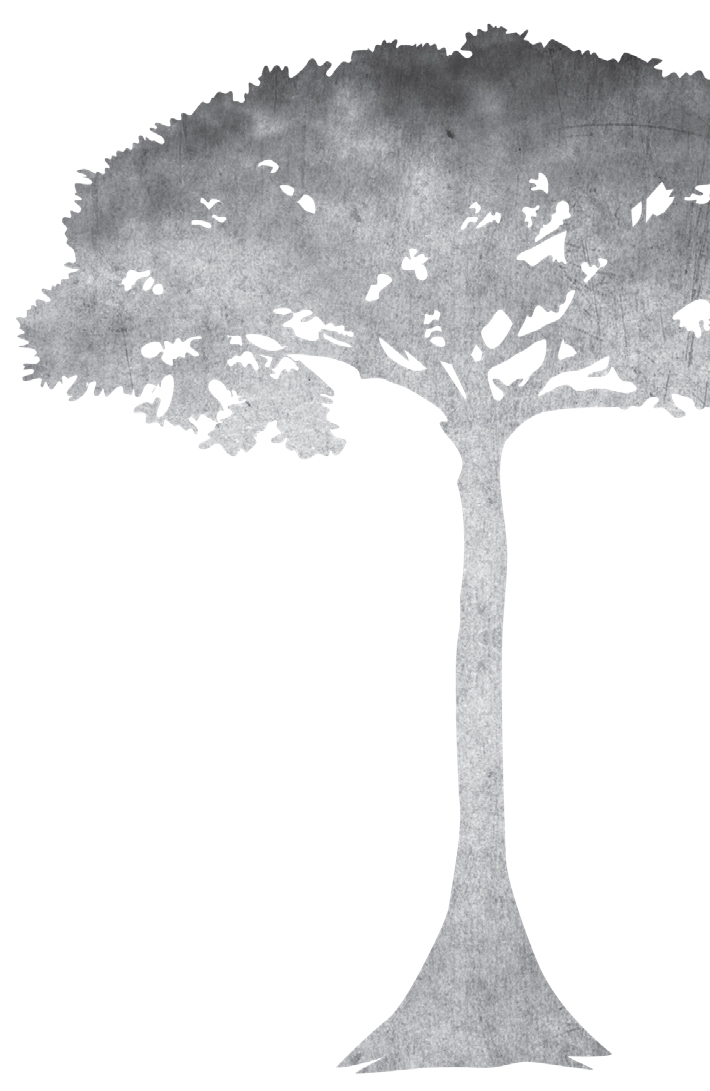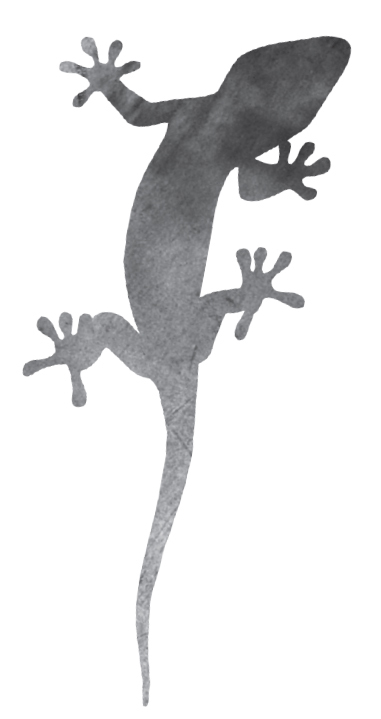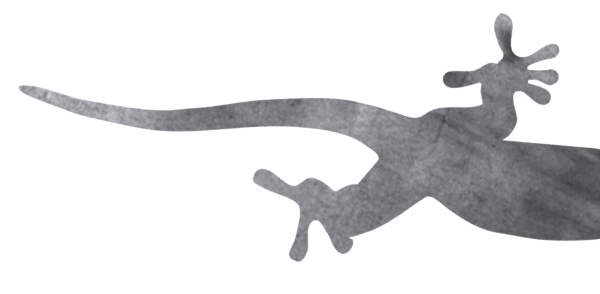

‘GRANDCHILD OF MINE? Come talk to me!’ A few days later, when Ma is on the road again, Nana’s summons slashes the air like a whip.
My heart tingles, immediately alert.
I’m with Maybe and Ama, about to go down to the river. Maybe clutches a breadfruit, a gift from Aunt Ruby. We intend to swim, then treat ourselves to a barbeque of fish and breadfruit spiced with Aunt Clara’s mango relish. I can smell the fish already, almost taste it, when Nana calls me again.
‘Grandchild of mine, where are you?’
‘Later,’ I say to my friends. ‘I’ll catch up with you and Gaza later.’
Maybe frowns. ‘Sheba, let us wait small.’
‘Go,’ I insist. ‘Family…’
Sensing my unease, Maybe inhales. His eyes lighten, a sign he’s sensitive to tension in the air, tension seeping from the pores of my skin. He notices shadows beneath my eyes and a question clambers to his throat. He pushes it down. ‘Later,’ he agrees. ‘Tell me later.’
I climb upstairs and walk along a white-washed corridor that leads to the sitting room. The most formal room in our house, it’s dusted and cleaned every day, its floorboards polished to a shine once a month. This is where Nana calls family members when she has something urgent to discuss. Disputes are settled here, family cravings satisfied, so it is not a place to enter lightly.
I take a deep breath, for as I open the door, I appreciate I’m stepping into my family’s past.
The first thing I see, the first thing that strikes anyone who enters, is a huge portrait of my great-grandfather in the regalia of an Asante chief. The ancestor I never met in the flesh, but see once in a while pacing our corridors at night, bears an uncanny resemblance to Nana. They share the same forehead in faces framed by manes that give them the air of lions in repose. Regal, relaxed. Look again, and you’ll see a glint of steel in their eyes.
Nana Gyata su – a chief with the courage of a lion – was the overall leader of our community. Everyone in the family calls him Nana Gyata su, so I do as well. And like Nana, I nod as soon as I catch sight of him, acknowledging his authority displayed by his attire and a brocade umbrella over his head.
Heavy gold chains roll from his neck over a kente cloth woven especially for him. On his feet he wears a pair of ceremonial slippers to ensure his soles never touch the ground. He bristles power. I meet his gaze and a smile quickens his lips.
I grin in reply, using Nana’s words to greet him: ‘Good morning, Nana Gyata su. How are you today?’
‘Come here,’ says my grandmother.
A wave of sadness swirls off her and splashes in a sigh as she pats an empty space beside her.
The day before, Grandma Baby and Aunt Ruby had been about to leave for the funeral of Nana’s oldest friend. My grandmother had packed her bags too, and was about to set off, when she had realised that her bones had grown so stiff and weary with age, her travelling days were over. She would grieve for her friend at home, she said. She would do what our ancestors advised us against: she would weep for a friend alone.
I felt the weight of Nana’s sigh yesterday. Today, I feel it again, and glimpse fragments of her pain, bright as seashells on a shore. I sit down, my blood warming her bones, my thigh against hers.
‘I’ve spoken to my friend, Maanu, about what you told me,’ she says. ‘Maanu is a diviner I’ve consulted before. She’s willing to see us at daybreak, six days from now. Before and after we see her, Sheba, I want you to remember that our problem is a family matter. It stays under this roof. You do not discuss it with your friends, and certainly not your mother. Do you understand?’
I place a palm on Nana’s thigh. She covers it with her fingers, gently garlanding my wrist. Once again, her sadness seeps into me. I feel the tug of it, the inky blackness of its depth as I’m dragged to its centre. Something twitches, flickers. A minnow terrified of light dives to a place beyond my grasp, where only Nana can reach.
Turning my palm upward, lacing my fingers in hers, Nana looks me in the eye. ‘Every family has its secrets, and this will be ours, Sheba.’
I’m about to nod, when I remember Maybe. Only moments before, without a word being exchanged, he had appreciated how anxious I was. What goes through my mind, enters his as easily as sunlight licking skin. To shut him out would be as useless as trying to stop breathing. ‘But, Nana, what if…’
‘Not a word to anyone,’ Nana insists. ‘What happens under this roof stays here. For all our sakes, don’t be an okra mouth, child. Don’t indulge in foolish, konkonsa behaviour by spreading gossip. Keep your lips sealed or the people of this village will start pointing fingers. And when they do that, no one can predict where it will end.’
Nana’s warning hurts. How can she suggest that our secret may slip out unbidden, when for as long as I’ve lived, I’ve listened to her voice above all others? I am not an okra mouth. Never have been, never will be! And to imply that what I’ve uncovered may bring shame to our family tightens a noose of dread around my neck.
My hand still in hers, Nana looks past the portrait on the wall to the cotton tree outside. Planted by the earliest settlers, it’s about to flower for the first time in years. Its leaves, stirred by an afternoon breeze, rustle, while thorns that protect its trunk strum in reply.
The tree sways, its branches clap, as leaves and thorns begin humming. In a swish of a lion’s tail, its song will pad to the river before ambling to the forest beyond. But first, it slinks into our house in a tangle of sound: the purr of buds opening, high-pitched creaks of wood, followed by tremulous, low notes. ‘Weee,’ the cotton tree croons. ‘Weee.’ Over and over. The tree sings, and a musky smell of river, moist as earth after rain, nuzzles my face.

The song tears open my heart, for as I listen, a crow circles the tree. Three times it circles, before banking and alighting on to a branch. The bird twists its neck and seeing us, hops closer, pebbled eyes blinking.
‘Sa! Sa!’ I want to cry. I listen instead, because the tree’s song and the crow remind me of my dream; my dream and the grief in Nana’s sigh.
‘Can you hear it?’ she asks. ‘Whenever that tree’s about to flower, it sings. It sings to prepare us…’ She hauls herself up.
I take her hand and walk her to the window where she catches sight of the crow. The glint in her eyes dim as she steadies herself, clutching my shoulder.
‘Before the week is over, grandchild of mine, I shall take you to Maanu. She sees what other people can’t. She’ll tell us what to do.’
‘But Nana…’
‘Keep your questions for Maanu,’ Nana says. ‘Only a fool describes a calabash no one can see or touch. All I can tell you, grandchild of mine, is that in all my years on this earth, I’ve never heard of such a thing as what you described to me the other day. Never!’
![]()
As chance would have it, the afternoon before we’re due to visit the diviner, Ma returns home to stock up on merchandise. As soon as I sense her presence, I freeze.
The four of us – Maybe, Gaza, Ama and me – have spent the day running errands for my aunts: delivering material to a seamstress for Aunt Ruby, taking pomade to a client of Aunt Clara’s, a basket of snacks to an ailing relative. Having bustled up and down, from the top of the hill to the river, we stop at the cotton tree for a bout of Kung-fu boxing.
It’s our current obsession after watching yet another of Video Man’s movies. In the film, a gang of street children wage battle against the Bandit Queen. A queen of bandits by day, she’s a fraudster, stealing children with every breath she takes. At night, she becomes the Fire Queen, a raging inferno that whirls from village to village consuming people and homes. Entranced, we decide to play the part of street children who, using a combination of Kung-fu skills and guile, pummel our version of the Fire Queen – Queen Sasabonsam; the Devil Queen – to death. Pow! Zap! Keerching!
The boys show Ama and I how to kick with our feet and hands, block assailants with a slash of our palms and then slay them in a frenzy of elbow and knee jabs. We perform. And when he feels like it, Maybe sketches on a special pad – a gift from Aunt Ruby. Before he draws a line, we stand and – legs apart, ready for combat – we practise our war cries, screaming: ‘Hi-ya!’ Chinese-style.
Gaza, mimicking shrieks on his harmonica, echoes us while Maybe, a hand to his ear, encourages us to scream louder.
‘Queen Sasabonsam is crazy-bad,’ he says, ‘an elephant on the rampage. Release your trumpet call.’
Legs astride, I inhale, allowing a tornado to gather in my lungs before hurling it in Ama’s face.
She roars: ‘Hi-ya!’ in reply.
I spin around, kick a leg in the air.
Ama and I are preparing to spar again, when street vendors either side of the track flap their arms, waving cloths at us. ‘Enough of this hi-ya! nonsense! Don’t you hi-ya! people know that some of us rest on a Saturday?’
We scramble home, a pack of hungry hyenas chasing each other, to be rewarded with a mound of Aunt Clara’s tatale: plantain and chilli pancakes cooked in palm oil. Tatale, my favourite, downed with sobolo, the drink Aunt Ruby buys from Maybe’s mother.
We feast while the adults in the house retreat to their rooms for their afternoon naps. Then, as we start fighting again and Maybe sketches our Kung-fu kicks, the air around me changes. It bristles like the fur of a hissing cat.
Goosebumps fleck my arms. I listen, sense my mother at the door. Sweat moistens my palms. Heart skitters. Flips. Lands with such a thud, I can scarcely breathe as Ma, dumping her bags in the hall, saunters into the courtyard. Instead of speaking, she watches us, arms folded. Eyes glittering, an eyebrow arched, she stiffens, an incarnation of Queen Sasabonsam on the verge of unleashing her rage.
Maybe, sketchpad on lap, turns to see who’s erased my dimples, placing pinpricks of terror in my eyes.
Ma glares at him. Scowls at me, and my heart shrivels to a puddle.
Years before, I would have run into her arms excited by the rub and kiss of her nose, the tickle-lick of her lashes and those gifts she brought me from Lomé, Bolgatanga, Ouagadougou: faraway destinations the sound of which thrilled me.
Today, her stare spikes my skin and I cower as if the thorns on the cotton tree outside, having pierced the walls of our house, have filled the air with barbs.
I hold my breath.
Unfolding her arms, Ma harrumphs. ‘Nowadays, this house no longer feels like home,’ she remarks. ‘No one welcomes me. No one, not even my little chick here.’
Unable to fill my mouth with words she’d like to hear, I begin to stutter. Mouth, tongue, lips, no part of me obeys my command.
‘You see!’ Ma cries, triumphant. ‘Even my baby-last can’t greet me as she should.’
I try again. My throat clenches.
Gaza smooths his hand over mine. He too, finds it difficult to talk at times. He too, on occasion, stutters, making his harmonica do most of his talking, while Gecko soaks up his love.
The thought of Gecko zips through me, and the lizard perks up. Basking in a pool of sunshine, he flips his tongue at a fly. Gobbles it, then begins the long journey back to Gaza. Meanders. Pauses. Flicks his tail, picking up a hint of danger as Ma, following my eyes, catches sight of him.

Ma sniffs and Gecko scrambles from one end of the courtyard to the other.
As he runs, as Maybe slips his hand in mine, Ma raises her foot, and, quick as a snake strikes, she stamps.
I gasp. All of us do, even Ama. All of us except Ma.
A smile greases her mouth as Gecko, his tail trapped, flees, dumping his appendage as only lizards can. Diminished, he scuttles up Gaza’s leg and into his hip pocket.
No one moves.
Seconds pass.
Ama, behind me, touches my shoulder.
Maybe and Gaza hold on to me. Bit by bit, disdain, a magnet in Ma’s eyes, clamps on me, dragging me to her, head bowed, until I’m in her shadow.
Ma laces long fingers around my neck. The noose tightens.
‘Welcome home, Ma!’ says Ama, and grabbing one of my mother’s bags, she hauls it to our bedroom.
‘You two, out!’
Maybe and Gaza, about to take the rest of Ma’s luggage, pause.
Ma jerks her chin at the door. ‘You heard me! Out!’
The taste of lemon stings my tongue. ‘Wait!’
The noose stifles my breath. Gagging, I force Ma’s fingers apart and then pulling away, bundle what’s left of our feast into a parcel I thrust at Maybe. ‘Tomorrow?’
‘Tomorrow,’ he replies. ‘Welcome home, Ma,’ he adds as Gaza trails him to the door.
‘Ma? Ma?’ my mother cries. ‘Young man, don’t you dare “Ma” me! I am not your mother. I am not your aunt, and I am certainly not your friend. If you must call me anything, call me Madam.’
Maybe winces.
Flecks of light dart over his face. His skin flames, and for an instant I’m aware he’s gazing at Ma and me with more than his own eyes. Ma may not realise it, but four pairs of eyes are inspecting us: burrowing, probing, uncovering our beginnings and endings. Maybe and his departed-dead. They surface. Flicker. Fade.
Maybe glances at me, baffled, and then turning again to Ma, he says: ‘Sorry, Madam. Welcome home.’
